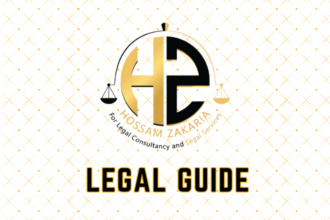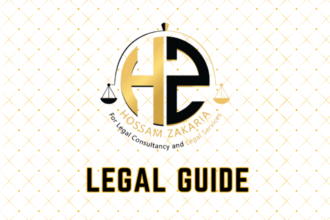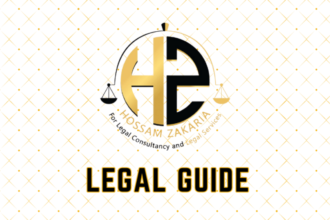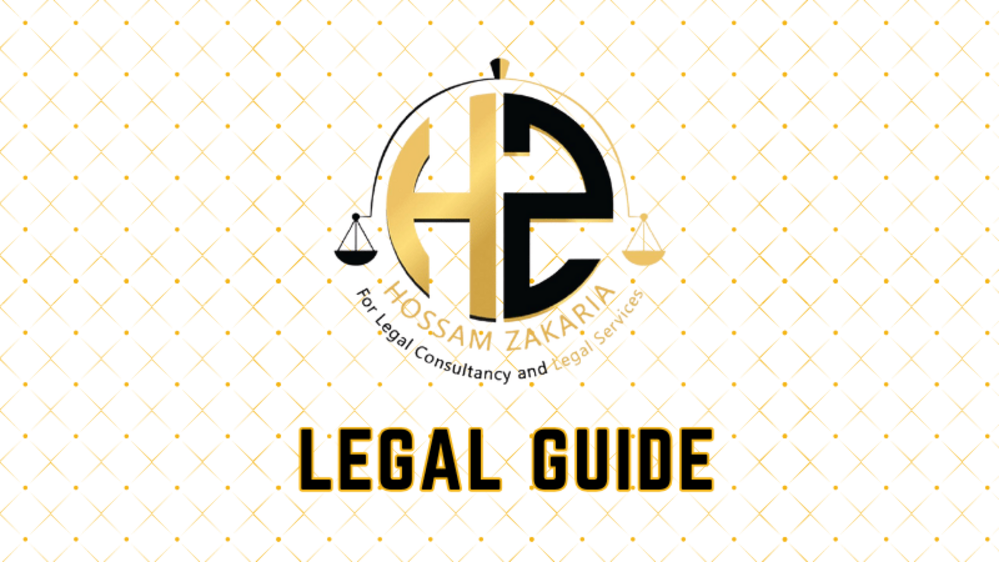Introduction
Artificial Intelligence (AI) is transforming industries across the globe, with the insurance sector in the United Arab Emirates (UAE) standing at the forefront of this technological evolution. Insurers are leveraging AI-driven analytics for underwriting, claims management, fraud detection, and customer experience enhancement. However, alongside these advancements come profound legal questions around risk assessment, regulatory compliance, transparency, and accountability, particularly as AI systems assume greater roles in decision-making processes. In 2024–2025, a confluence of updated federal decrees, enhanced regulatory guidelines, and sector-specific circulars have recalibrated expectations for legal compliance in the UAE’s insurance landscape. This article delivers an in-depth legal analysis on AI risk assessment obligations, the implications of recent legislative amendments, and actionable strategies for businesses aiming to remain compliant while driving innovation.
With growing regulatory scrutiny from the UAE Insurance Authority (now the Insurance Division of the Central Bank of the UAE), and a suite of new laws affecting data privacy, AI governance, and insurance operations, executives, compliance officers, and legal professionals must navigate a complex risk environment. Understanding the current legal landscape for AI deployment is no longer optional – it is now a core requirement for sustainable, lawful, and reputationally robust business practices in the UAE insurance sector.
This consultancy-grade briefing sets out practical, regulatory insights, comparative legal analysis, and guidance for UAE-based insurers, reinsurers, and related service providers.
Table of Contents
- Legal Framework for AI in UAE Insurance
- Recent Developments and Key UAE Laws
- Provisions and Regulatory Obligations
- Practical Impact and Case Studies
- Risk Analysis of Non-Compliance
- Compliance Strategies and Best Practices
- Forward Outlook and Conclusion
Legal Framework for AI in UAE Insurance
The Central Bank of the UAE and Regulator’s Role
Since 2021, the Central Bank of the UAE (CBUAE) has assumed regulatory authority over the insurance sector (pursuant to Federal Decree Law No. (25) of 2020). The Insurance Division within the CBUAE is empowered to oversee not only financial prudence and governance but also technology-driven practices, including AI adoption. The CBUAE issues circulars, guidelines, and supports compliance monitoring for AI-enabled processes that may affect the rights of policyholders or expose insurers to novel operational risks.
UAE AI Principles and National Strategies
AI governance in the UAE is shaped by overarching national strategies such as the “UAE National Artificial Intelligence Strategy 2031,” which promotes responsible, trustworthy, and innovative use of AI. The UAE’s commitment is further articulated in the Cabinet Resolution No. (1) of 2019 on the Governance of AI Systems, which sets a compliance foundation for regulated sectors including insurance.
Insurance-Specific Guidance
The Insurance Authority Board of Directors’ Decision No. (49) of 2019, governing the operations of insurance companies, requires adherence to international risk management standards and obligates disclosure, transparency, and ethical conduct, particularly concerning technological advancements. With growing use of AI, these provisions now encompass the duty to assess and manage unique AI risks.
| Law/Regulation | Scope and Relevance |
|---|---|
| Federal Decree Law No. (25) of 2020 | Centralizes insurance sector regulation under the CBUAE, expanding oversight to digital and AI practices |
| Cabinet Resolution No. (1) of 2019 | Makes AI governance, ethics, and transparency mandatory for all AI-driven decisions in regulated sectors |
| Data Protection Law (Federal Decree Law No. 45 of 2021) | Mandates lawful processing and protection of personal data, with direct implications for AI-driven underwriting and claims |
| Insurance Authority Decision No. (49) of 2019 | Requires robust risk management and proactive technological governance in insurance companies |
Recent Developments and Key UAE Laws
New Regulatory Initiatives and Circulars (2024–2025)
In response to AI adoption, the CBUAE issued Circular No. (2) of 2024 on the “Use of Emerging Technologies and Fintech in Insurance Operations,” establishing supervisory expectations for deployment of AI systems in underwriting and claims investigation. Insurers are now required to:
- Conduct pre-implementation AI risk assessments
- Document algorithm decision logic and maintain explainability
- Disclose the use of AI to customers in plain language
- Obtain regulatory pre-approval for AI innovations that materially impact risk profiles or customer rights
The Evolution of Data Protection and AI Accountability
With Federal Decree Law No. 45 of 2021 on Personal Data Protection and its Executive Regulations (Cabinet Resolution No. 52 of 2022), companies processing personal data—such as insurers using AI for individualized risk profiling—must now integrate data protection by design, conduct Data Protection Impact Assessments (DPIAs), and implement AI-specific safeguards over automated decisions.
| Pre-2020 | 2020–2025 Updates |
|---|---|
| Generic risk management protocols, no explicit AI duties | Mandatory AI risk assessments, explainability, reporting, customer transparency |
| Basic data confidentiality clauses | Full compliance with new data protection law; DPIAs for automated decisions |
| Limited regulatory engagement on tech innovations | Pre-implementation notification and approval requirements; AI audit trails |
Provisions and Regulatory Obligations
AI Risk Assessment—A Core Legal Duty
Under the combined effect of the above laws and regulatory instructions, UAE insurers must implement a formal AI risk assessment framework before and during the use of any AI-driven tool that impacts underwriting, claims, pricing, or fraud detection. The assessment should address:
- Identification and categorization of the AI system’s operational risks
- Potential for bias, discrimination, or unfair contract outcomes
- Data provenance, consent, and rights management
- System transparency, explainability, and auditability
- Cybersecurity and data breach vulnerabilities
Documentation and Reporting
Pursuant to Cabinet Resolution No. (1) of 2019, insurers must maintain detailed documentation of AI risk assessments, including:
- Technical architecture and logic of AI models
- Periodic risk re-assessment protocol
- Record of mitigation strategies and governance controls
- Board-level oversight and escalation procedures
Obligations Toward Policyholders
The laws require that AI-driven underwriting or claims assessment decisions be communicated transparently to policyholders, with meaningful explanations and recourse pathways (as per CBUAE Circular No. 2 of 2024). Additionally, customers must be notified in advance if their personal data is to be used in automated decision-making.
Visual suggestion: A process flow diagram illustrating the AI risk assessment lifecycle, from initial model design to ongoing compliance monitoring.
Practical Impact and Case Studies
Case Example 1: Automated Health Insurance Underwriting
A leading UAE insurer introduced an AI-powered platform to automate health insurance policy pricing, utilizing medical history data. However, following a DPIA, the company discovered that the underlying model disproportionately flagged certain applicant demographics as high-risk, potentially breaching anti-discrimination principles. Upon regulatory review, the insurer was required to recalibrate the model, publicly disclose the adjustments, and implement ongoing bias monitoring.
Case Example 2: AI-driven Claims Processing and Fraud Detection
An insurer piloted AI tools to detect suspicious claims by analyzing policyholder behavior and travel patterns. Under the new legal framework, the company was obligated to:
- Notify affected customers of automated assessments
- Provide manual review opportunities for rejected claims
- Document the basis for AI-driven rejection decisions
This compliance-centric approach mitigated potential complaints and regulatory penalties.
Hypothetical Scenario: Non-Compliance Risks in Third-party AI Integration
A hypothetical insurance broker utilized an external AI SaaS provider for premium calculations but failed to conduct a full external risk assessment or seek regulatory pre-approval. Following a customer complaint about opacity in pricing, the CBUAE launched an investigation which resulted in a temporary business suspension, underscoring the necessity of supply chain diligence.
| Area of Violation | Potential Sanction (per UAE law) |
|---|---|
| Lack of AI risk assessment/due diligence | Warning, fine, or operational license suspension (See Art. 38, Insurance Authority Law) |
| Breach of data privacy obligations | Administrative fines up to AED 5 million (Federal Decree Law No. 45/2021) |
| Failure to notify or explain AI decisions to policyholders | Mandatory restitution, reputational harm, regulatory intervention |
Risk Analysis of Non-Compliance
Regulatory, Operational, and Reputational Risks
AI use without proper legal compliance exposes UAE insurers to:
- Direct regulatory sanctions—including substantial fines and suspensions
- Legal claims from customers for unfair bias or opaque AI decisions
- Loss of trust, market share, and damage to brand reputation
- Forced system shutdowns and technical audits by regulatory authorities
Emerging Risks on the Horizon
Given the rapid uptick in AI deployments, additional risks may emerge, such as sector-wide cyber breaches facilitated by interconnected AI systems, or cross-border regulatory actions where international reinsurers are involved. Thus, a robust, future-proof compliance posture is essential.
Compliance Strategies and Best Practices
Implement an AI Risk Assessment Framework
Legal compliance and risk mitigation require a documented, organization-wide AI risk assessment framework, ideally integrating elements from both CBUAE circulars and international standards (e.g., ISO/IEC 23894:2023 on AI risk management):
- Pre-implementation risk scoping
- Systemic impact and legal risk mapping
- Corporate governance and board oversight on AI policies
- Ongoing monitoring, periodic reviews, and real-time incident reporting
Develop AI Transparency and Explainability Protocols
Ensure all AI-driven decisions, especially adverse ones (e.g., denial of claims), are communicated with accessible explanations. Build automated and manual recourse for objections and ensure compliance with Articles 15–19 of the Data Protection Law concerning automated decision-making rights.
Conduct Data Protection Impact Assessments (DPIAs)
Every major AI deployment involving personal data or automated significant decisions must be accompanied by a DPIA, as required by Federal Decree Law No. 45 of 2021. This must be reviewed by the company’s Data Protection Officer and submitted to regulators if risks cannot be fully mitigated.
Supply Chain and Third-party Due Diligence
Extend compliance checks to any third-party AI or data service provider. Insist on contractual guarantees of compliance and regular vendor audits, in line with regulatory outsourcing guidelines (CBUAE, 2022).
Visual suggestion:
- Compliance Checklist Table: Essential steps for effective AI risk assessment, with a tick-box next to each item for monitoring progress.
Forward Outlook and Conclusion
The deliberate integration of AI into the UAE insurance sector presents both transformative opportunities and new legal complexities. Recent legal updates, including Cabinet Resolution No. (1) of 2019 on AI governance and the Data Protection Law (Federal Decree Law No. 45 of 2021), signal a decisive regulatory shift towards robust, transparent, and accountable AI practices. Insurers who embrace compliance as a strategic enabler—by deploying systematic AI risk assessment frameworks, prioritizing transparency, and rigorously protecting data—will not only avoid sanctions but also gain competitive trust and operational resilience.
Looking ahead, we anticipate further harmonisation of AI governance requirements across banking, insurance, and broader fintech. As the UAE continues its digital transformation journey, insurers should proactively review their AI protocols, educate their teams, engage with regulators in advance of innovations, and foster a culture of compliance-first innovation.
Best Practice Recommendations:
- Stay attuned to new CBUAE and federal circulars and implement changes promptly
- Engage legal counsel early when developing or acquiring AI-powered systems
- Invest in AI ethics and compliance training across the organization
- Build multidisciplinary AI governance committees to bridge legal, technical, and operational perspectives
Insurance market participants who act ahead of the regulatory curve and prioritize responsible AI deployment will shape the future of the sector in the UAE and beyond.
Official References (for further client reading)
- Central Bank of the UAE Insurance Regulations: centralbank.ae
- Federal Decree Law No. 45 of 2021 on Personal Data Protection: u.ae
- Insurance Authority Board Decision No. (49) of 2019: centralbank.ae
- Cabinet Resolution No. (1) of 2019 on AI Governance: uaecabinet.ae



